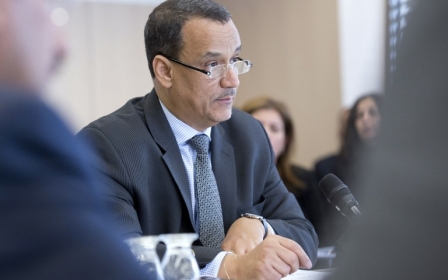Houthis, Yemeni government agree to ceasefire ahead of talks: Report

Houthis and Yemeni government officials have reportedly agreed to begin a ceasefire ahead of the resumption of peace talks expected to begin in April.
The agreement for a ceasefire in the near future came as Houthis met with the UN envoy to Yemen, Ismail Ould Cheikh Ahmed, in the Yemeni capital Sanaa on Sunday, AP reported.
Officials told AP that the Houthis had agreed to implement a UN security council resolution which would require them to give up their weapons and withdraw from territory they have occupied, including the capital.
Ahead of meeting with the Houthis, Ahmed held talks with Yemeni President Abd Rabbuh Mansour Hadi in Riyadh.
Officials with the internationally recognised government reportedly said on Sunday that they agreed to the ceasefire to show their good intentions towards a resolution for the conflict.
Earlier attempts at a ceasefire agreement have failed as either side has accused the other of violating the terms before they could take hold.
Talks scheduled for April would restart a first round of discussions which ended abruptly in December without resolution.
Yemen has been gripped by violence since September 2014, when the Iran-backed Houthis, who had long complained of marginalisation, stormed Sanaa and forced the internationally recognised government to flee south.
A Saudi-led coalition began bombing raids on Houthi positions across Yemen in March 2015 but the group has continued to hold parts of the country including the capital.
Hadi's government has declared the southern city of Aden to be the country's provisional capital.
The year-long coalition campaign has faced criticism over civilian casualties.
The UN said Friday that Saudi-led raids are responsible for the vast majority of the estimated 3,200 civilian deaths in the Yemen war. At least 3,000 fighters on both sides are thought to have died over the past year.
Middle East Eye propose une couverture et une analyse indépendantes et incomparables du Moyen-Orient, de l’Afrique du Nord et d’autres régions du monde. Pour en savoir plus sur la reprise de ce contenu et les frais qui s’appliquent, veuillez remplir ce formulaire [en anglais]. Pour en savoir plus sur MEE, cliquez ici [en anglais].




